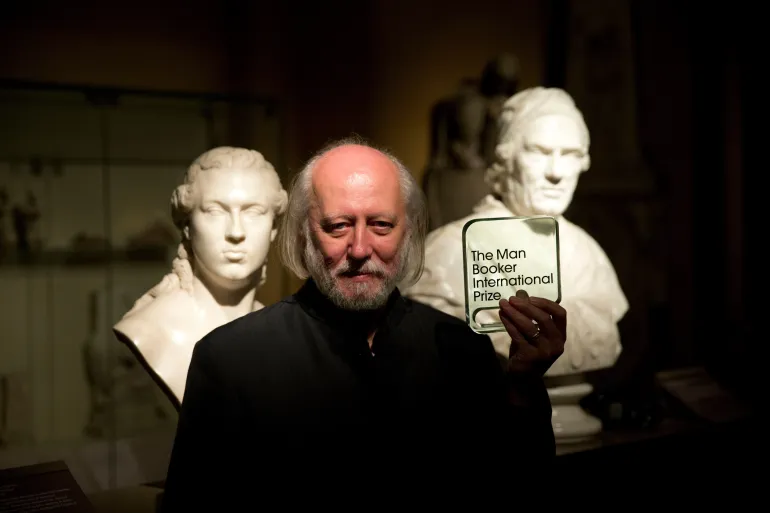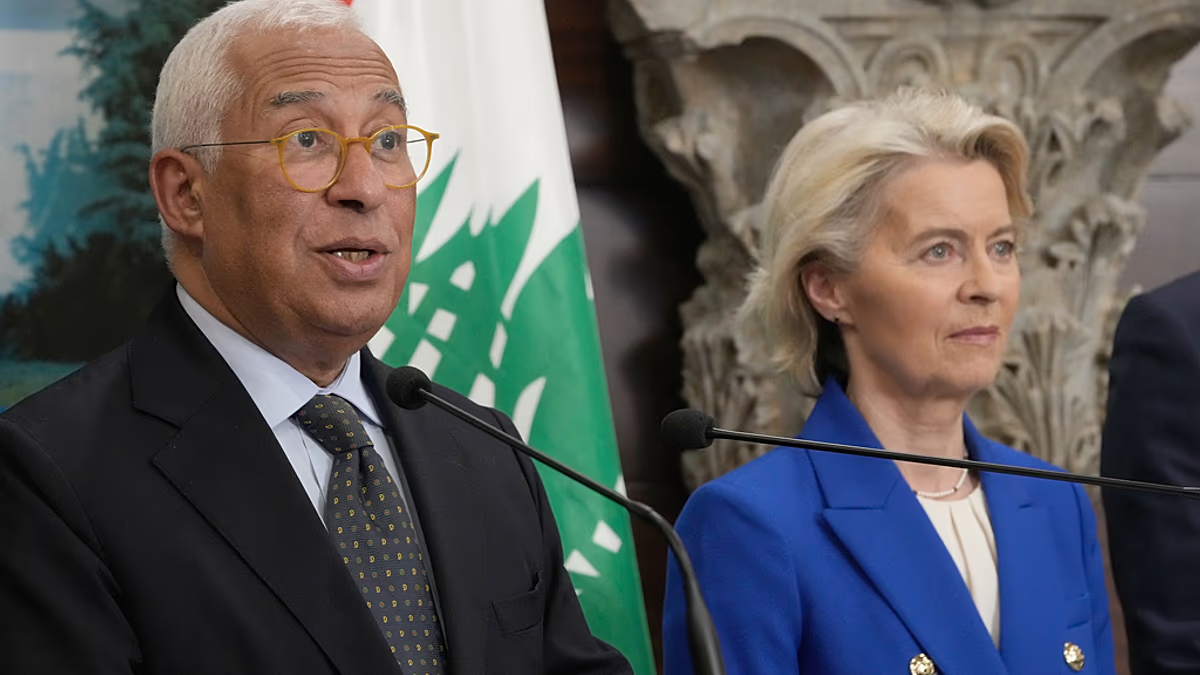The literary world finally exhaled this Thursday. The Swedish Academy made a monumental choice. Hungarian novelist and screenwriter László Krasznahorkai has won the 2025 Nobel Prize in Literature. This decision recognizes a colossal body of work. It is an oeuvre dedicated to apocalyptic vision. Specifically, the Academy honored him “for his compelling and visionary oeuvre that, in the midst of apocalyptic terror, reaffirms the power of art.” This award shines a powerful light on a writer. His style is demanding yet deeply rewarding. Consequently, he now joins the ranks of history’s greatest literary figures.
A Voice from Central European Gloom Nobel Prize
Krasznahorkai’s writing is rooted in a rich tradition. This heritage is the Central European experience. Therefore, critics frequently compare him to giants. They mention Franz Kafka and Thomas Bernhard. Like those authors, Krasznahorkai embraces absurdism and grotesque excess. His narratives often unfold in remote, wind-swept Hungarian villages. These settings serve as microcosms. They reflect humanity’s universal decline.
His breakthrough novel was Sátántangó (1985). This work immediately established his stark, mesmerizing vision. The story details a desolate rural community. Residents wait for a promised, yet dubious, redemption. Furthermore, his second novel, Az ellenállás melankóliája (1989), cemented his reputation. It plunges a small town into social chaos. The catalyst is a mysterious traveling circus. This circus carries the carcass of a giant whale. Violence and anarchy spread quickly. As a result, the American critic Susan Sontag famously called him the “contemporary Hungarian master of the apocalypse.” This title has remained with him ever since.
The Signature Style: Sentences of Endless Flow
A defining feature of Krasznahorkai’s genius is his distinctive prose style. It immediately sets him apart. He employs sentences of extraordinary length. Often, these sentences stretch across many pages. Sometimes, an entire chapter is a single, winding paragraph.
This technique is more than a mere gimmick. Rather, it serves a profound artistic purpose. The long, flowing syntax captures a sense of relentlessness. It mirrors the ceaseless flow of human experience. The prose sweeps the reader along. It mimics the feverishness of his characters. It immerses the reader fully. His translator, George Szirtes, described it perfectly. He called Krasznahorkai a “hypnotic writer.” His work draws the reader in. It makes the world he conjures feel intensely personal. This style, moreover, perfectly suits his themes. It reflects the sense of overwhelming dread. It captures the social order’s fragility. Herscht 07769, his 2021 novel, even unfolds over a single, propulsive sentence.
Thematic Grandeur: Apocalypse and Redemption Nobel Prize
Krasznahorkai’s novels explore vast, profound themes. They consistently address the collapse of the social order. They dissect the ultimate futility of human ambition. Therefore, his narratives are frequently dark. They are often tinged with melancholy.
Háború és háború (War & War, 1999) is a powerful example. Here, the archivist Korin flees Budapest for New York. His sole mission is to share an ancient, beautiful epic with the world. This desperate act is his final gesture. It seeks to impose art and meaning onto chaos. Then there is Báró Wenckheim hazatér (Baron Wenckheim’s Homecoming, 2016). This epic combines comedy with a deep sense of despair. The ruined Baron returns home. He searches for love. Instead, he finds himself trapped. He is subject to the world’s unpredictable malice. Consequently, his work is deeply political. It offers no simple solutions. It confronts the darkness head-on.
Yet, there is always a counterpoint. The Swedish Academy noted this key element. His work “reaffirms the power of art.” Amidst the terror, beauty emerges. Art becomes a source of meaning. It offers a final, transcendent refuge.
A Vision Beyond the West Nobel Prize
While deeply Central European, Krasznahorkai’s vision is truly global. He has traveled extensively. These journeys inspired his work. Specifically, his time in East Asia—Mongolia and China—shifted his focus.
This eastward gaze introduced a quieter tone. His novel Seiobo járt odalent (Seiobo There Below, 2008) showcases this shift. It is a collection of seventeen stories. These stories are arranged in a Fibonacci sequence. The book explores the mysterious creation of art. It examines how beauty endures in a world of impermanence. Furthermore, it is a contemplative work. A finely calibrated meditation on the inexplicable act of creation. This contrasts sharply with his earlier, more feverish epics. It demonstrates his remarkable versatility. It also proves his intellectual curiosity.
The Political Resonance of the Award
The Nobel Prize also carries political weight. Krasznahorkai has been a prominent critic of Hungary’s autocratic government. He has often spoken out against Prime Minister Viktor Orbán. Notably, he condemned the lack of support for Ukraine. He questioned Hungary’s neutrality during the Russian invasion.
Therefore, the award can be seen as a nod. It supports a voice of dissent. It celebrates an author who refuses to be silent. Nonetheless, Prime Minister Orbán was quick to offer congratulations. He called Krasznahorkai “the pride of Hungary.” This reaction underscores the complexity of the prize. It is simultaneously cultural and political. The laureate may critique the state. Yet, the nation still claims his glory.
Krasznahorkai joins an illustrious Hungarian lineage. He is the first winner since Imre Kertész in 2002. Kertész was another voice of melancholy. He chronicled the trauma of the Holocaust. Thus, the tradition continues. Hungary provides a literary window. It shows the struggles of Eastern European identity.
Final Acclaim for a Master Nobel Prize
The Nobel Prize is the highest honor. It follows other major recognitions. Krasznahorkai won the Man Booker International Prize in 2015. He also secured the National Book Award for Translated Literature in 2019. These awards signaled his long-overdue international recognition. They highlighted the importance of his translators.
Read More Articles Click Here.












Leave a Reply